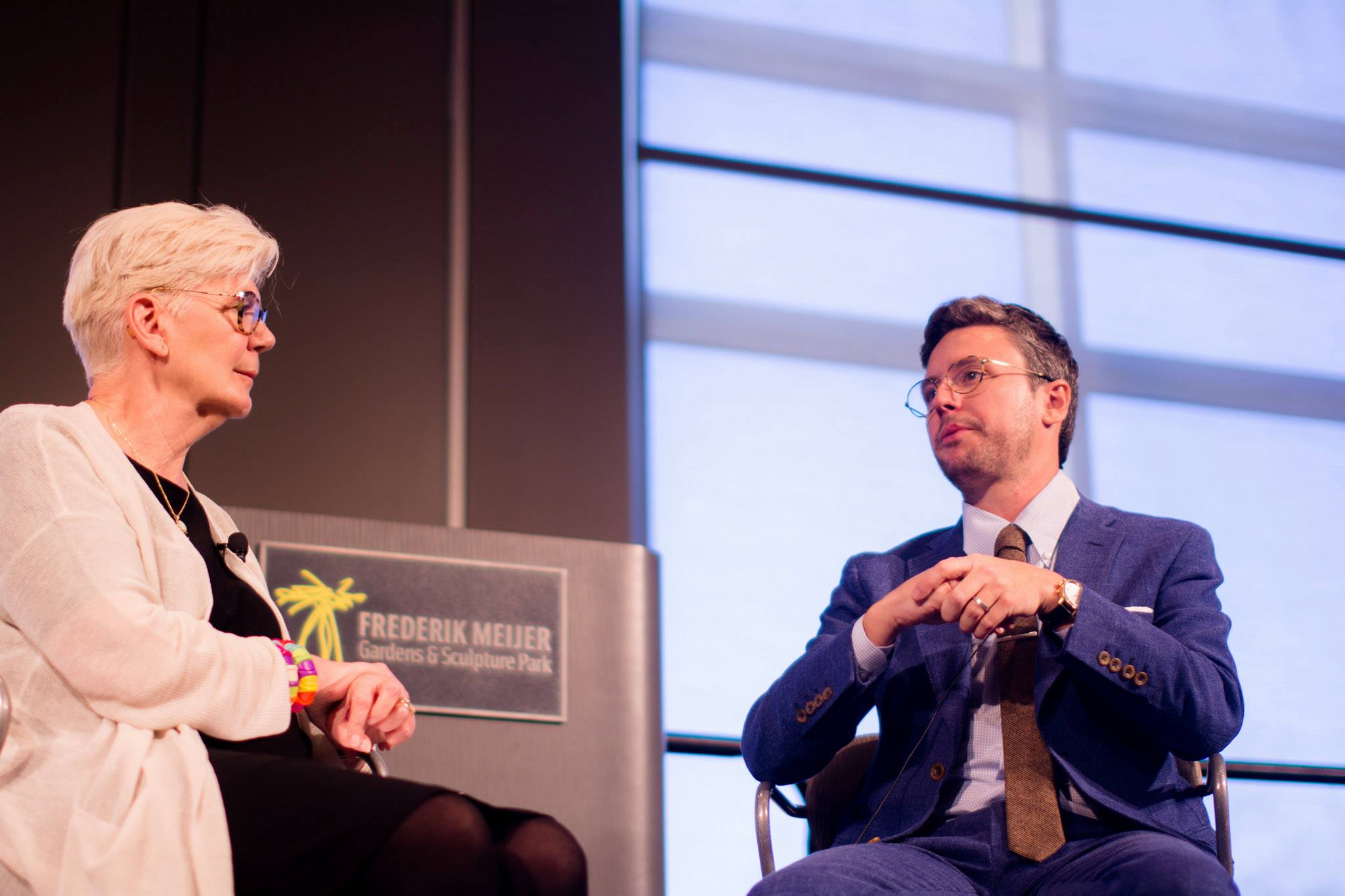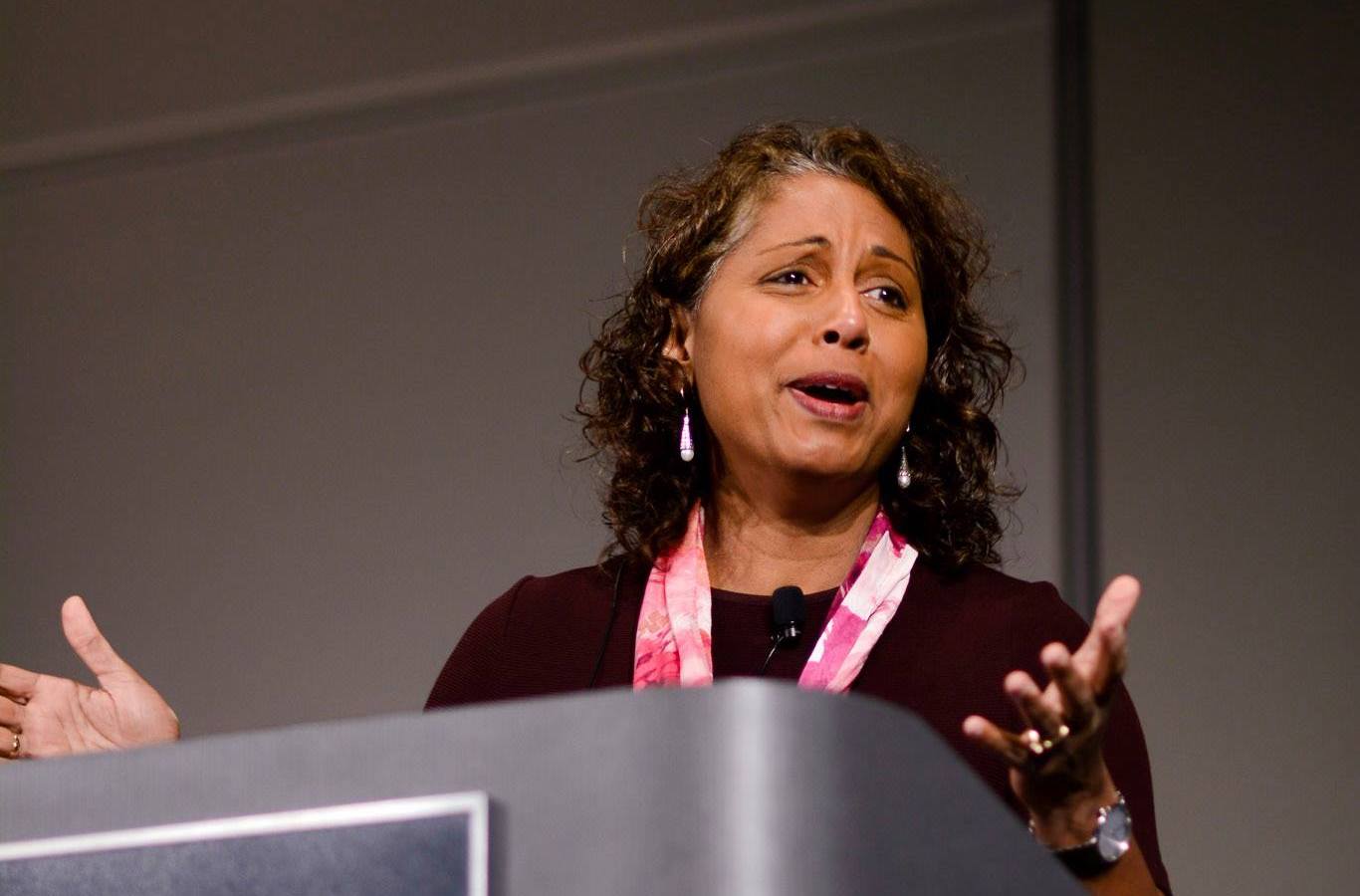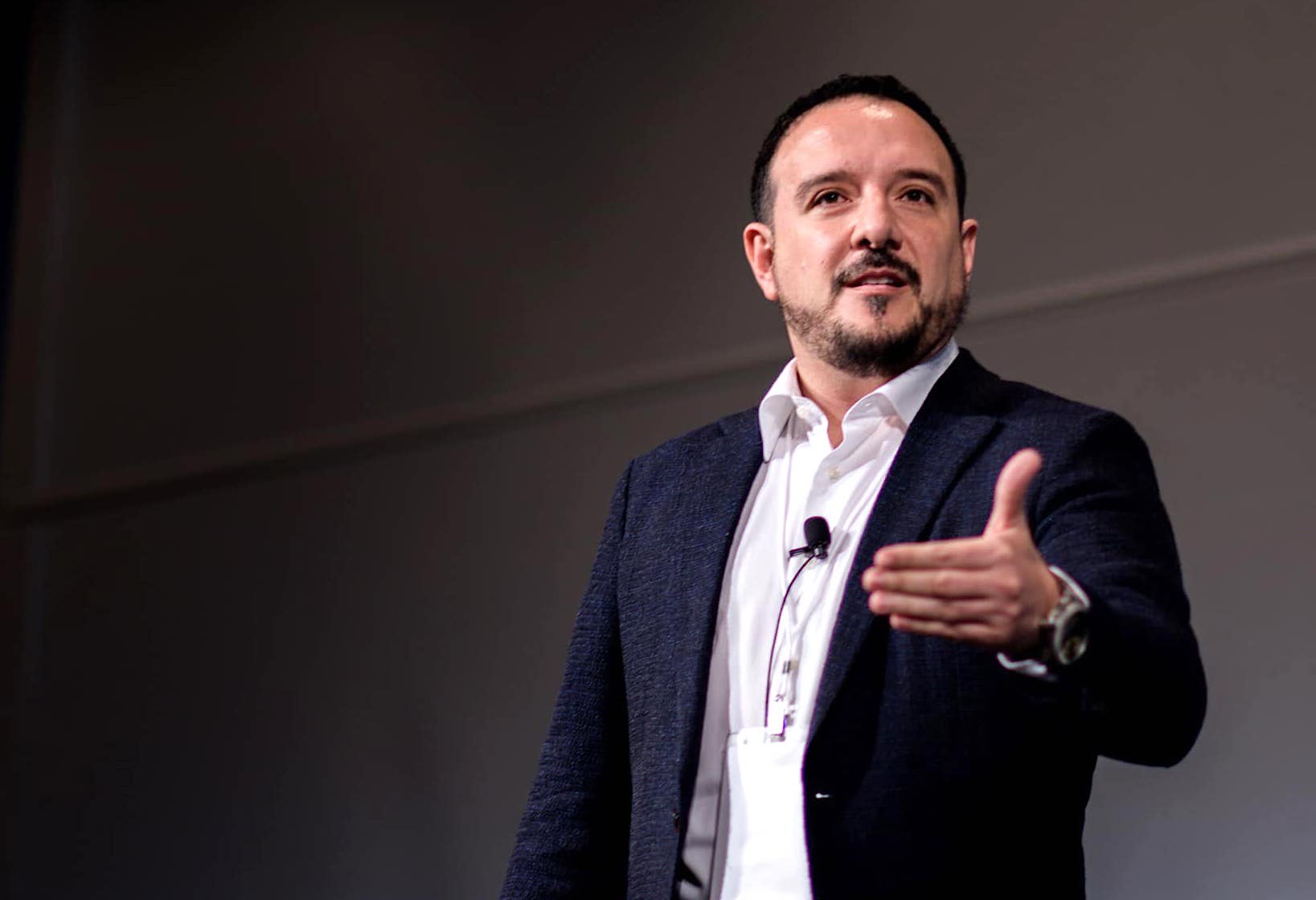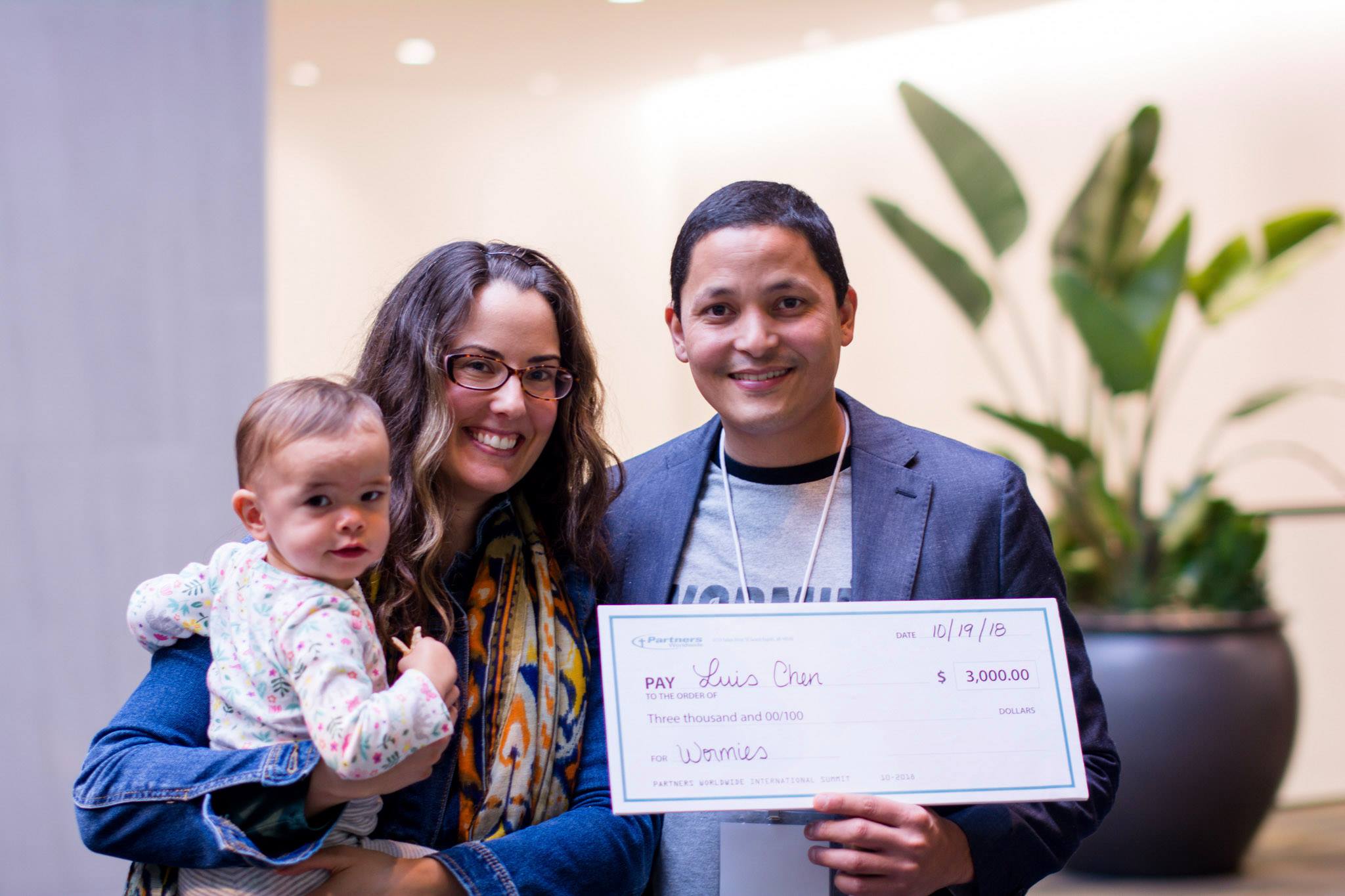Highlights from the 2018 PW International Summit
Though it was early in the morning, the room was alive. With the vibrant atmosphere of a family reunion, old friends embraced; new acquaintances were quickly made; and conversations in English, Creole, and Spanish filled the air.
It was the first morning of the 2018 Partners Worldwide International Summit, and the anticipation for what was to come was palpable.
For two days, members of our far-flung global network were together in one place at Frederik Meijer Gardens in Grand Rapids, MI.
425 guests had traveled from 34 countries to gather—face to face—and engage in learning, fellowship, dialogue, and networking. It was a rare and sacred occasion which only fueled the swelling excitement in the room.
The buzz fell to a hush as Attah Obande (pictured above on left), our engaging emcee for the Summit, took the stage. He kicked the Summit off and introduced our first keynote speaker, Rev. Dr. Samuel Reeves (pictured above at right).
In the Summit’s opening session, Sam spoke about integrating business and ministry and emphasized that “we are called to be salt and light in the business sector. The church must encourage entrepreneurship as a divine calling.”
He also shared how his church has played a role in rebuilding post-war Liberia through founding LEAD, Inc., a local partner of Partners Worldwide and Liberia’s largest microfinance institution.
Following Sam’s keynote, we dispersed into breakout sessions focused on topics such as social enterprise, cross-cultural collaboration, business training, and empathy.
Over lunch, attendees enjoyed an interview with Nathan Bond, CEO and Co-founder of Rifle Paper Co., an international brand. Bond spoke honestly about the humble beginnings of his entrepreneurial journey and encouraged attendees to “not be overly cautious or too hesitant to take new opportunities. Just do it.”

Following Nathan’s interview, a panel of leaders from Nigeria, Honduras, and India shared how businesspeople can pursue shalom—defined as right relationship with God, self, others, and creation—through their work.
Then, we wrapped up our first day of the Summit up with another round of breakout sessions that focused on business coaching, access to capital, and how business intersects with faith and innovation.
Eager for more time to connect, over half of the attendees opted to attend regional dinners. We piled into Cascade Fellowship Church, filed through a Qdoba buffet line, and gathered in groups according to our regional affiliation.
Entrepreneurs, Partners Worldwide staff members, volunteer Business Affiliates, and local leaders from Latin America and the Caribbean took one room. Representatives from South Asia and Southeast Asia took half the gymnasium while representatives from Africa took the other half, and North America settled in a corner.
I was amazed at the attendee’s hunger and thirst to connect.
Most were struggling from jet lag, and had just spent a long day at the Summit, yet choose to spend another few hours of their evening in conversation. Their evident desire to connect was a testament to what a rare opportunity this face to face time indeed was.
The momentum of these regional dinners carried us into the second day of the Summit. Dr. JoAnn Flett, the Director of Eastern University’s MBA in Social Impact program, opened our second day with a powerful devotion on the figure of Joseph of Arimathea.

Though only briefly mentioned in scripture, we know that Joseph was a man of wealth and privilege who used his position to further the Kingdom.
He was a member of the Sanhedrin, the group of Jewish religious leaders who called for Jesus’ crucifixion, though he opposed the decision. After the crucifixion, Joseph was the one responsible for providing Jesus with an honorable Jewish burial.
With Joseph’s example to guide us, JoAnn urged that, “justice requires a right reading of my social reality. How am I, how are we, using our influence, time, and resources to meet the world’s needs?”
Following JoAnn’s devotion, Julio Zelaya—a global expert on entrepreneurship hailing from Guatemala—delivered an energizing keynote.
He shared candidly about the failures he has experienced as an entrepreneur over the years, and the invaluable lessons those failures have taught him. He encouraged us to discover our “why” and to allow "our biggest pains to become our biggest purposes."

Next, we broke out into sessions on the importance of SMEs in job creation; the centrality of agriculture to ending poverty; how racism, sexism, and other “isms” stop businesses and people from flourishing; and more.
Over lunch, we participated in a lively pitch competition (co-hosted by our partner SpringGR).
Five Grand Rapids-based entrepreneurs pitched, a panel of judges asked follow-up questions, and the Summit attendees voted to decide who went home with the grand prize of $3,000. We heard from:
- Wali from Save Time Dry Cleaning
- Kayon from Nourish Your Curls Boutique
- Whitney from Life Addicts Studio
- Raquel of Sparkle & Shine Cleaning Services of West Michigan
- Luis from Wormies Vermicompost
Luis of Wormies won the grand prize of $3,000, and Wali won the second-place prize of $2,000. However, Raquel, Kayon, and Whitney also each took home $1,000 to help grow their businesses!

After lunch, we enjoyed a final round of breakout sessions on starting lean; spiritual metrics; business and advocacy (with learnings from Honduras); and building permanent, resilient institutions (with examples from Africa).
We came back together for our closing keynote session from Doug Seebeck, Partners Worldwide Founder and President/CEO.
Doug shared a vision for a world without poverty and the progress that is being made towards that goal, stating: “For the first time in human history, less than 10 percent of the world lives in extreme poverty. Incredible progress has been made, but progress is slowing.” He urged the attendees to release the myth that the poor will always be with us and instead emphasized that “poverty is only a temporary condition and not a permanent destiny.”
We closed the Summit with a commissioning prayer from Rev. Dr. Sam Reeves and by reading aloud our manifesto, which calls for the end of poverty for good.
Attendees slowly trickled out the door, taking selfies, exchanging hugs, and swapping contact information.
As I watched the crowd disperse, I was reminded that the strength of Partners Worldwide lies in our relational network that allows these sacred connections to take place.
At the Summit, agribusiness owners from Haiti connected with agribusiness owners in Honduras, sharing learnings and best practices with one another. Volunteer mentors serving in North America dialogued with volunteers serving in Africa, and similarly, were able to support and encourage each other.
Entrepreneurs who are seeking to operate ethical, biblical businesses in very challenging environments were able to remind one another that they aren’t in this work alone; they have one another to lean on.
We know that the solutions to poverty lie within the communities who are facing poverty. In these communities are knowledgeable, talented, and compassionate local leaders who are committed to making their corner of the world a better place.
Yet, these leaders often feel like they’re facing an uphill battle alone. By connecting with others who are also doing this work in their own contexts, they receive the support, encouragement, resources, and guidance they need to press forward. While the Summit was only two shorts days, we know that these relationships will only continue to grow and flourish.
We're grateful for each member of our global network who attended the Summit, and pray that the seeds that were planted here may begin to bear fruit in your lives, your businesses, and your communities—now, and for years to come.